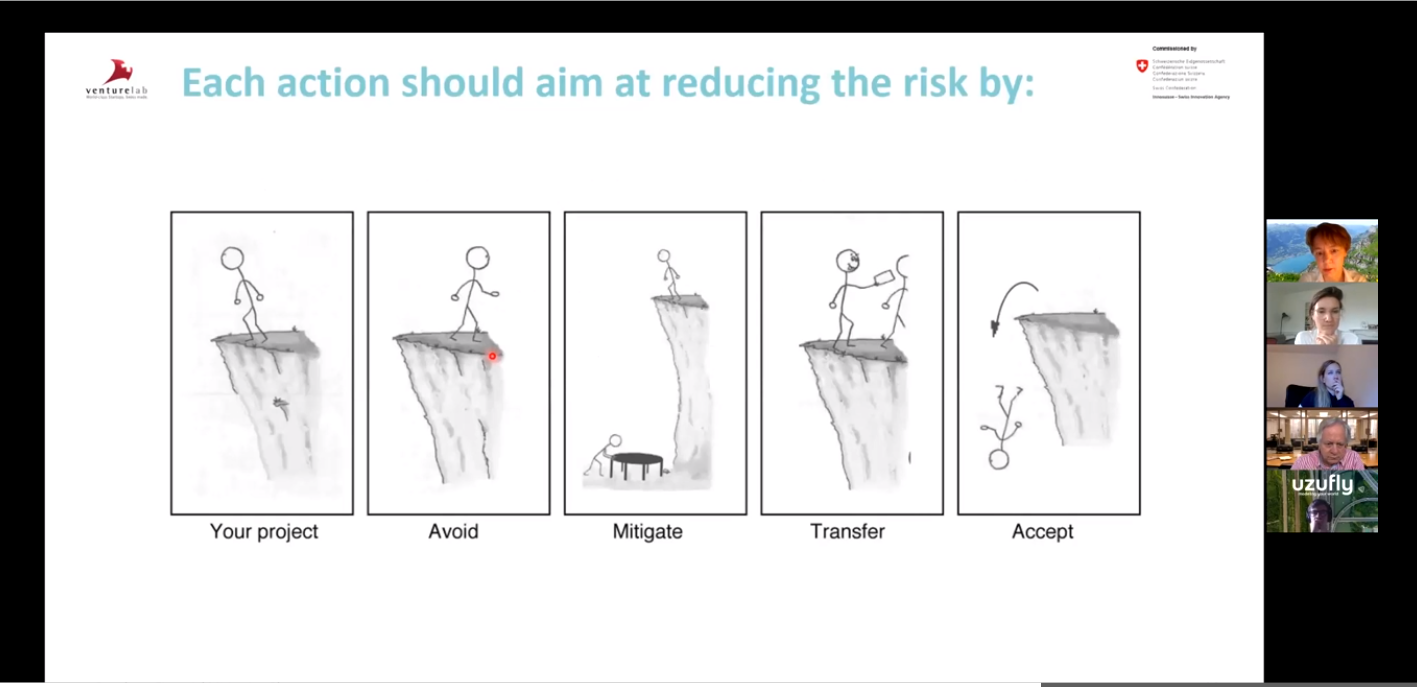“Even the strongest startups will need to be prepared to see some pressure on their valuation,” said Andreas Goeldi, Partner at btov Partners, when we asked him about his take on the valuation of early-stage startups in the foreseeable future. He is not alone in his assessment: Historically, we can expect a drop in deals and valuations after an economic crisis. To better evaluate the situation in Switzerland, we wanted to know what local investors think of the current and future developments.
According to the Swiss Venture Insights Report Q1 2020, Swiss venture capital investments in Q1 2020 decreased by CHF 100 million, compared to Q1 2019. The unpredictability of the impact of COVID-19 on the economy and the restraint of investors present startups with a difficult outlook.In early May, when we invited six investors to talk about how startups should handle fundraising during COVID-19, the experts at Kellerhals Carrard included decreasing valuations in their seven assumptions for 2020: “Valuations outside the few industry segments that benefit from COVID-19 will be lower (20%-40%).” But how much will valuations decrease, and what are the implications of this development for Swiss startups?
We conducted a short survey among our investor network and asked them how much valuations will decrease. We received 42 answers:

More than 90% of investors think that there will be a decrease in the valuations of early-stage startups in the foreseeable future. To add some context to these results, we asked four investors for statements that explain their choice.
 Dr. Ulrich Geilinger, senior partner at HBM Partners AG:
Dr. Ulrich Geilinger, senior partner at HBM Partners AG:
“Early-stage valuations usually suffer less during downturns than valuations of later-stage companies. This has been experienced during the financial crisis (2008/09) and when the dot-com bubble burst (2001/02). However, it is generally more difficult to raise money for startups, as some funds are pre-occupied with their current portfolio.
In the current crisis, we expect that valuations and the possibility to raise money mainly depend on the business or sector the company targets, i.e., will the business plan be affected by the corona epidemic or not. Some businesses, such as digital health or collaboration/online business, are 'hot' and might find it even easier than before to get money.”
 Andreas Goeldi, partner at btov Partners:
Andreas Goeldi, partner at btov Partners:
“Historically, startup valuations have decreased significantly in an economic crisis, often by 25% or more. It is still too early to tell how strong the impact will be this time, but all signs point toward a similar effect. However, valuations strongly depend on the sector a startup is in. Some categories will benefit from the accelerated push toward digitization, and these startups will likely continue to see strong valuations. Investors will prefer startups that have demonstrated resilience and strong capital efficiency, and they will pay fair prices for those companies. But even the strongest startups will need to be prepared to see some pressure on their valuation—for example, even Facebook had to accept a down-round in 2009.”
 Damian Janzi, investment manager at Innovationsstiftung der SZKB:
Damian Janzi, investment manager at Innovationsstiftung der SZKB:
“I think that the impact of COVID-19 on a startups’ valuation depends primarily on a company’s traction, as there will be an increased emphasis on a company’s ability to actually—and not just in theory—sell their products and earn money. I also observe a decrease in the size of investment rounds, as many investors seem to remember now that early-stage investing is actually a risky business, and it makes sense to invest gradually. It is, however, important to stress that I see the current valuation development as a correction rather than a crisis. In my opinion, the valuation levels of many early-stage startups have become increasingly out of touch with reality. Overall, rather than mourn past high valuations, I think it is paramount to look forward and focus on building up convincing performances instead.”
 Jon Roberts, co-founder and director at Menalto Advisors:
Jon Roberts, co-founder and director at Menalto Advisors:
“On average, I expect that early-stage valuations will decline moderately over the coming months. There has been a sudden shift in market leverage, with demand for capital now outweighing supply. Many early-stage companies are requiring more capital sooner than anticipated due to fundraising and/or business disruption. Meanwhile, many capital providers are being more cautious and have slowed their rate of investment, while some have even stopped investing entirely. In aggregate, this positions active capital providers to invest on more attractive terms, which usually includes lower valuations. However, I do not expect the valuation decline to be uniformly distributed, with some sectors being deeply impacted, and others only marginally affected. There are even a few sectors where valuations will likely increase due to accelerated growth and market adoption driving greater investor interest.”
Cash remains king in the current situation. The coming months will help us understand what COVID-19 means for startup funding: “Year-on-year Q2 numbers are going to tell us if term sheet negotiations have moved back from the founder-friendly side and shifted the power toward the investors,” says Stefan Steiner, co-managing director at Venturelab.
Our daily Startup Funding newsletter shows that venture capital investments are slowing down but have not stopped. In Switzerland, startups are still raising rounds, investors are still looking for investment opportunities, and we continue to strengthen the best Swiss startups.




 (1).jpg)

